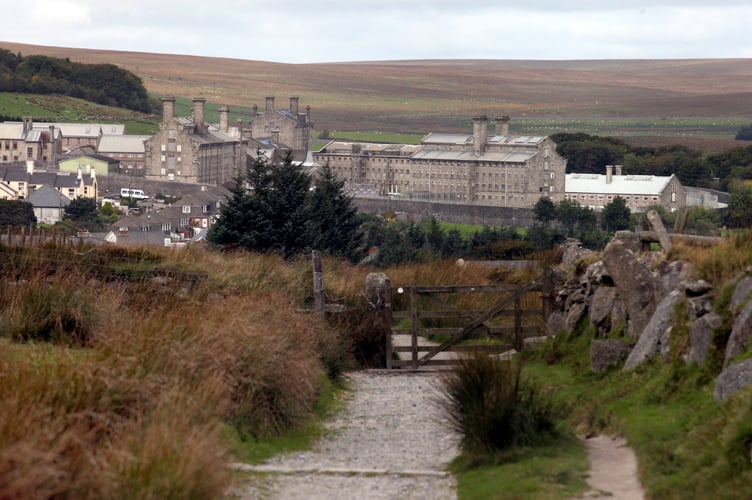Prison officials have denied reports from people close to Dartmoor Prison that inmates’ health is being unnecessarily risked by exposure to radon gas.
The Ministry of Justice (MoJ) has emphatically denied that radon, a naturally occurring gas from granite, which is particularly prevalent on Dartmoor, is a safety hazard at the prison.
Managers stress that no staff or prisoners are at risk from exposure to radon, which can cause lung cancer if anyone is exposed to high concentrations for prolonged periods.
They acknowledge the presence of the gas and routinely test for it under statutory health and safety requirements and say they have been taking measures to ensure no prisoners are exposed to the radon for long periods.
This involves moving “small” numbers of inmates temporarily from areas where radon is in high concentrations. Some prisoners were moved just before Christmas. Work was then completed to reduce the “higher than normal” levels.
The Prison Service has been monitoring radon gas routinely and is taking measures to address initial gas levels to protect prisoners and staff. This work includes closing or restricting access to certain affected areas and introducing increased ventilation to improve air flow and reduce or stop radon levels.
However, sources close to HMP Dartmoor claim the authorities are playing down the risk to staff, prisoners (especially those with long-term conditions) and visitors, that they are not taking it seriously enough and they also suggest the gas is causing illness.
One anonymous complainant has raised her concerns with Sir Geoffrey Cox, Torridge and West Devon MP, but has not been satisfied with the response he was given by the MoJ. She said: “They have known about it (radon) for years and are still choosing to dismiss it as a ‘nothing’ but these sudden evacuations have been going on for years.
“Numerous prison officers and prison staff have either died or are currently been treated for cancers that are conveniently dismissed if they can find a link to smokers.”
She claimed the prisoners who were moved just before Christmas week were from a wing for terminally ill and dementia prisoners, and that those prisoners with special and complex needs were transferred across the country to avoid the radon exposure. This would require their complex needs to be assessed and met all over again in a new prison by new staff, having taken years to achieve in Dartmoor, she said.
Another unnamed source said: “If Dartmoor prison is safe why have they closed three wings and more are being moved out? There was a report done 12 years ago about the radon and the report has since disappeared.
“Despite this, families will eventually find out the truth – radon is a dangerous gas that can cause all sorts of problems.
“There is more radon in Dartmoor prison than drugs – putting prisoners and staff at risk is bad enough, but putting families (as visitors) at risk, including babies and young children is even worse.”
She also claimed there were no signs warning of the presence of radon around the prison visit hall: “There should be, because otherwise there are people with quite serious illnesses coming into contact with radon which is cause for concern.”
She also echoed concern about prisoners being moved across the country to other prisons to avoid radon, with prisoners and family visitors distressed at being moved further apart: “This isn’t acceptable because families can’t get there. This is supposed to be keeping family ties. This is on top of them being locked up most of the day.”
An MoJ spokesperson said: “There are no safety implications to staff or prisoners who remain at HMP Dartmoor and these allegations are completely untrue.”
He added: “A small number of prisoners are being temporarily relocated as a precautionary measure while work to permanently reduce radon levels is completed. “There are no safety implications to staff or prisoners who remain on site. For several years, we have been monitoring levels of radon in HMP Dartmoor and have already taken steps to address initial results and protect prisoners and staff. These include closing or restricting access to certain areas affected and the introduction of additional ventilation to assist air movement.
“No prisoner or staff member is or has reported illness or adverse reaction to the radon exposure. There is only a risk from prolonged exposure to the levels found at HMP Dartmoor. This is why we are moving prisoners – to ensure they are not exposed for a prolonged period. Staff move through the prison so are not exposed to the same levels of risk as prisoners living in affected cells.
Two wings have been impacted by an increase in radon levels – any prisoners with medical needs will have their care packages delivered at alternative prison sites.”




